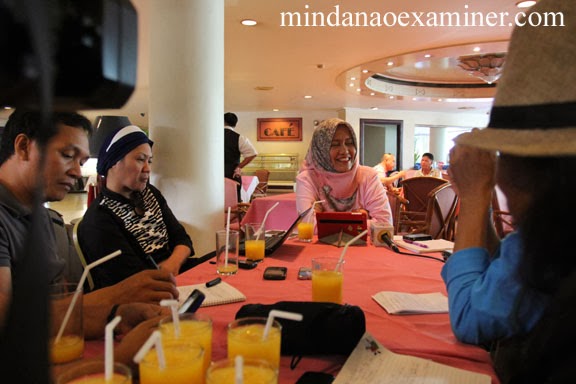
ZAMBOANGA CITY (Mindanao Examiner / Feb. 20, 2014) – The Philippines is bracing for the deportation of tens of thousands of undocumented Filipinos from Malaysia after Kuala Lumpur renewed its crackdown on illegal migrants and workers.
More than 1,000 illegal Filipinos in Sabah, which is being claimed by the Sultanate of Sulu, have been deported over the last five months.
Lawyer Laisa Alamia, who is the Executive Secretary of the Autonomous Region in Muslim Mindanao, said they are now working to provide temporary shelters for deportees in Tawi-Tawi’s Bongao town while waiting for various government agencies to process them and eventually sent home to their original places.
“We are now working on an immediate solution to process quickly and sent home the deportees so they can be reunited with their families,” said Alamia, who led a team to Tawi-Tawi province to oversee the processing of the Filipinos sent home by Malaysia.
Some 198 Filipinos arrived by boat recently from Sabah and many of them are natives of Tawi-Tawi and Sulu, two of five provinces under the Muslim autonomous region. Over 600,000 Filipinos are in Sabah, a mineral-rich island and now forms part of the federated states of Malaysia.
The number of deportees could balloon and the autonomous government and the provincial government of Tawi-Tawi are working closely to address the influx of Filipino deportees and how to cope with this.
Various government agencies have set up a center to address the assist the deportees and among them are the Department of Social Welfare and Development, Department of Foreign Affairs, Department of Health, Department of Labor and the Commission on Human Rights.
Many deportees have told tales of human rights violations while in Malaysian jail – from physical abuse to rape – but Alamia said they have not officially receive reports of these complaints, although last year, there were allegations of human rights violations committed against Filipinos in Sabah, particularly when armed members of the Sultanate of Sulu clashed with Malaysian security forces in Lahad Datu town.
“Well for now, itong sa current deportation na nangyari, we have not receive yet reports of alleged human rights violation, but previously, that was in 2013 at the time na nagkaroon ng siege by the Royal Sultanate Army tapos yun mga dumarating ay na-interview ng DSWD habang pina-process and the DSWD officers sa mga probinsya was given instructions to document kung mayroon ba silang na-experience na human rights violation when they were arrested or during their escape..iba-iba yun mga kuwento, there are allegations of human rights violations and these are based on what they are saying,” Alamia said.
She said there have been no investigations to probe the allegations of human rights violations in Sabah.
“There is no empirical evidence based on investigation that’s conducted on site. Wala pang investigation. We cannot go there. Walang formal investigation coming from the Philippine government na pumunta sa Sabah to investigate human rights violations. Sa ARMM, we have not sent any team to investigate the human rights violations nga na sinasabi but we intend to discuss the migration issues, yun mga Filipino migrants who are there whether legal or illegal na nandoon. Kasi that would be more long term – so like for example itong demolition of the water villages, the continued crackdown and we have an appeal to do it calibrated para hindi naman tayo ma-overwhelm dito sa pagdating ng mga deportees. That will include human rights issues mayroon kasing mga diplomatic relations so because this is a national issue it’s up to the Philippines, it’s (in) the national level so the resolution of the Sabah issue is a national issue that is best left sa wisdom ng national government and we do not want to preempt also. But gumawa na kami ng recommendations,” she said.
President Benigno Aquino has not ordered any investigation into the issue of human rights violations against Filipinos in Malaysia, which is brokering peace talks between the Philippines and the Moro Islamic Liberation Front rebels, who are fighting for self-determination in Mindanao. (Mindanao Examiner)



